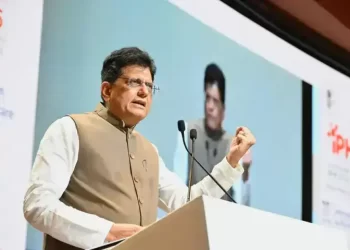Demoralized by the Biden administration’s handling of the Israel-Hamas war, Palestinian American Samia Assed found in Vice President Kamala Harris’ ascension — and her running mate pick — “a little ray of hope.”
That hope, she said, shattered during last month’s Democratic National Convention, where a request for a Palestinian American speaker was denied and listening to Harris left her feeling like the Democratic presidential nominee will continue the U.S. policies that have outraged many in the anti-war camp.
“I couldn’t breathe because I felt unseen and erased,” said Assed, a community organizer in New Mexico.
Under different circumstances, Assed would have reveled in the groundbreaking rise of a woman of color as her party’s nominee. Instead, she agonizes over her ballot box options.
For months, many Palestinian Americans have been contending with the double whammy of the rising Palestinian death toll and suffering in Gaza and their own government’s support for Israel in the war. Alongside pro-Palestinian allies, they’ve grieved, organized, lobbied and protested as the killings and destruction unfolded on their screens or touched their own families. Now, they also wrestle with tough, deeply personal voting decisions, including in battleground states.
“It’s a very hard time for Palestinian youth and Palestinian Americans,” Assed said. “There’s a lot of pain.”
Without a meaningful change, voting for Harris would feel for her “like a jab in the heart,” she said. At the same time, Assed, a lifelong Democrat and feminist, would like to help block another Donald Trump presidency and remain engaged with the Democrats “to hold them liable,” she said.
“It’s really a difficult place to be in.”
She’s not alone.
In Georgia, the Gaza bloodshed has been haunting Ghada Elnajjar. She said the war claimed the lives of more than 100 members of her extended family in Gaza, where her parents were born.
She saw missed opportunities at the DNC to connect with voters like her. Besides the rejection of the request for a Palestinian speaker, Elnajjar found a disconnect between U.S. policies and Harris’ assertion that she and President Joe Biden were working to accomplish a cease-fire and hostage deal.
“Without stopping U.S. financial support and military support to Israel, this will not stop,” said Elnajjar who in 2020 campaigned for Biden. “I’m a U.S. citizen. I’m a taxpayer … and I feel betrayed and neglected.”
She’ll keep looking for policy changes, but, if necessary, remain “uncommitted,” potentially leaving the top of the ticket blank. Harris must earn her vote, she said.
Harris, in her DNC speech, said she and Biden were working to end the war such that “Israel is secure, the hostages are released, the suffering in Gaza ends and the Palestinian people can realize their right to dignity, security, freedom, and self-determination.”
She said she “will always ensure Israel has the ability to defend itself,” while describing the suffering in Gaza as “heartbreaking.”
While her recent rhetoric on Palestinian suffering has been viewed as empathetic by some who had soured on Biden over the war, the lack of a concrete policy shift appears to have increasingly frustrated many of those who want the war to end. Activists demanding a permanent cease-fire have urged an embargo on U.S. weapons to Israel, whose military campaign in Gaza has killed over 40,000 Palestinians, according to Gaza health officials.
The war was sparked by an Oct. 7 attack on Israel in which Hamas-led militants killed some 1,200 people and took about 250 hostages.
Layla Elabed, a Palestinian American and co-director of the Uncommitted National Movement, said the demand for a policy shift remains. Nationally, “uncommitted” has garnered hundreds of thousands of votes in Democratic primaries.
Elabed said Harris and her team have been invited to meet before Sept. 15 with “uncommitted” movement leaders from key swing states and with Palestinian families with relatives killed in Gaza. After that date, she said, “we will need to make the decision if we can actually mobilize our base” to vote for Harris.
Without a policy change, “we can’t do an endorsement,” and will, instead, continue talking about the “dangers” of a Trump presidency, leaving voters to vote their conscience, she added.









